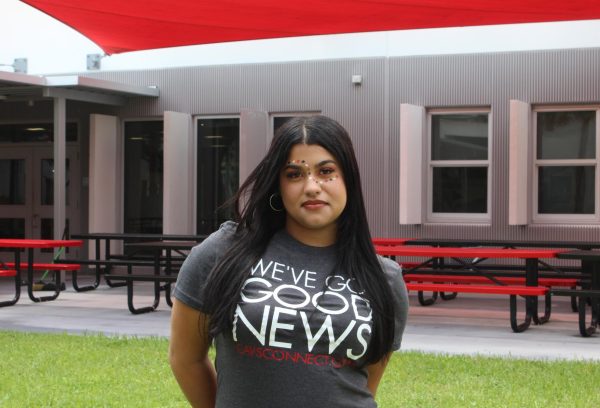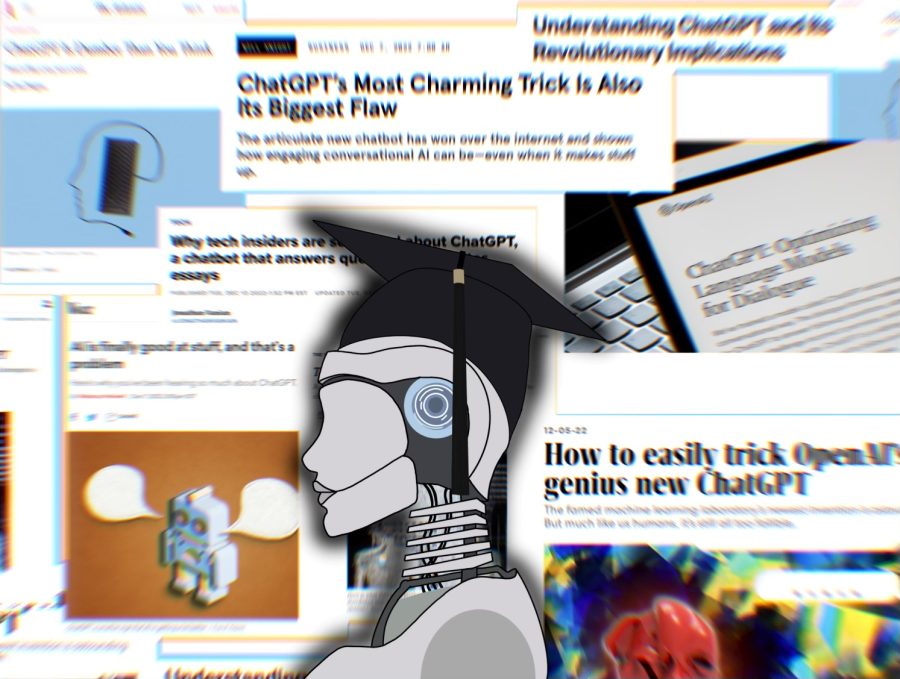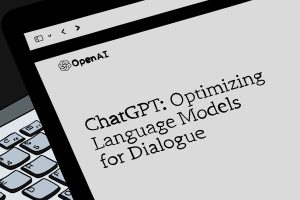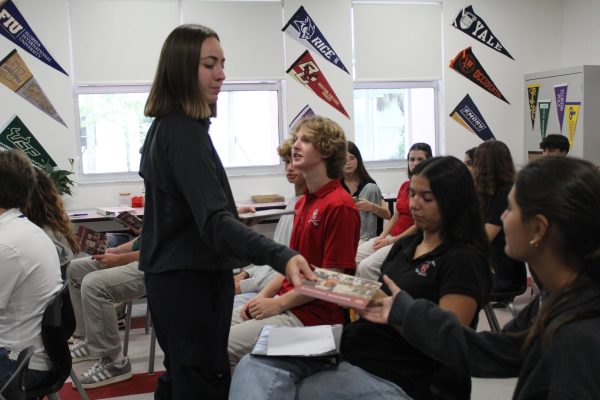Will AI Revolutionize or Ruin the Education System?
With the advent of artificial technology, its development into day-to-day life raises concerns, especially in the classroom.
The increasingly prominent integration of artificial intelligence into various industries has sparked discussions about its potential impact on the education system. Some believe that AI has the ability to revolutionize the way students learn by making education more accessible and personalized. Others are concerned that it could lead to job loss for teachers and a decrease in critical thinking skills for students. The idea of using artificial intelligence in the education system sounds exciting and futuristic. However, as someone who is deeply concerned about the future of education, I believe that the widespread adoption of AI in education could ultimately ruin the system as we know it.
With the recent release of Chat Generative Pretrained Transformer, humans are able to get highly relevant and engaging responses with just one click. One of the distinguishing features of ChatGPT is its ability to generate answers that are appropriate for any given context. This is achieved through the use of a “prompt” that is provided to the model, which helps it to understand the context of the conversation and generate appropriate responses.
One of the biggest concerns is the potential for AI to replace human teachers. While AI technology is becoming increasingly sophisticated, it can never replace the emotional intelligence and empathy that a human teacher can provide. Teaching is not just about imparting information, it is about creating a supportive and nurturing environment where students can thrive. Machines can never replicate this human touch.
“I believe that education should be about more than just learning information. It should be about creating a nurturing environment where students can thrive and develop into well-rounded individuals. I don’t think machines will ever be able to replicate the human touch of a teacher and the benefits of a personalized education,” freshman Kevin Martinez said.
Another problem with AI in education is that it could further exacerbate income inequality. AI-powered systems are likely to be more expensive than traditional forms of education, which means that only the wealthy will have access to them. This would create a two-tiered education system, where the rich have access to cutting-edge technology and the best teachers, while the poor are left behind with outdated methods.
The increased use of AI in education would also raise serious privacy concerns. AI systems would be able to collect vast amounts of data on students, including their learning habits, personal information and even their behavior outside of the classroom. This level of surveillance would be unprecedented and should be a cause for concern for everyone.
Additionally, AI-powered education systems may also become prone to manipulation and bias. It is important that we do not perpetuate the same bias in our education systems that we see in our society. AI will only replicate the bias that it was trained with, it is crucial that the data it is trained on is not biased or manipulated.
The use of AI in education could lead to a loss of creativity and critical thinking skills. With AI systems doing much of the work, students may become over-reliant on technology and lose their ability to think for themselves. Education should foster creativity and independent thinking, not stifle it.
While the idea of using AI in education sounds exciting, we must tread cautiously and carefully. The widespread adoption of AI in education could ruin the system as we know it. Lets focus on improving our education system by valuing our teachers and investing in the education of all, not just the select few.
Your donation will support the student journalists of Coral Gables Senior High School. Your contribution will help us cover our annual website hosting costs.

Meet Selena Feal: a spirited sophomore navigating her way through the Health Science, Public and Law academy. Going into her second year in CavsConnect,...

Joseph Abrahantes is a junior in the International Baccalaureate program. Returning for his third year as a CavsConnect staff member, Abrahantes hopes...









